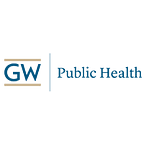This Virus Doesn’t Discriminate Yet The Death Rate for Black Americans Outpaces Any Group — What Gives?
By Adnan A. Hyder and Natasha Kazeem
The COVID-19 pandemic has affected nearly all countries around the world — with more than 1.8 million cases and over 100,000 deaths globally. In the United States, it is also affecting all states with some areas more than others (dubbed “hot spots”) — crossing 600,000 cases and 26,000 deaths (as of April 15) with rising numbers each hour. And while all genders, races, religions and income levels are affected — from presidents to the homeless — there is a very important differential appearing in this pandemic. Once again African-Americans are disproportionately being affected.
The vulnerability of African-Americans starts from the beginning of this country’s origin with the institution of slavery and persists among present day battles for social justice against the modern day institution of racism. As it relates to COVID-19, there appears to be a clear formula that accounts for the devastating numbers of mortality and morbidity in African-Americans — this segment of our population faces what we are calling the “triple threat.”
First, African-Americans are under threat as they are least likely to receive and follow preventive measures. Prevention messaging, modes of delivery and distribution are often unable to penetrate African-American populations especially in urban areas. Lack of access to internet and social media, variable literacy, and lack of frequent interactions with health care institutions puts this population at a disadvantage. Understandably, there is also a high level of mistrust of both the medical field and officials that may appear to be sending messages that are challenging to understand. This mistrust comes from decades of negative experiences — the Tuskegee syphilis study, institutional racism, economic barriers in accessing health care or even going to a provider that doesn’t look or share the same experiences as you for starters.
Second, the next threat faced is trying to get tested, or seeing a health professional once there is onset of symptoms or fear that one may be infected. According to the CDC, the social factors and health risks affecting black people at younger ages include the following: unemployment, living in poverty, lack of home ownership, lack of access to medical care, smoking, inactivity and obesity. These are some of the same risk factors that make contact with any type of health professional challenging. Even when testing is offered, it requires review by a physician and takes several days to return, thus stable home addresses, predictable means of communication, and transportation are critical components for care yet are not reliable sources of stability for members of this community.
Third, once infected they face the last threat of inequitable access to treatment, poor outcomes and availability of sophisticated medicines. Poor outcomes can also be attributed to co-morbidities which are so common in African-Americans that they have earned nicknames and continue to wreak havoc on the life expectancy of this group as a whole; for example, “the Silent Killer” (Hypertension) and “the Sugar” (Diabetes). Known risk factors that dramatically increase the likelihood of severe outcomes and death from the virus include: older age (65 and older), asthma or chronic lung disease, serious heart conditions, immunocompromised status (stemming from a variety of conditions), severe obesity, diabetes, chronic kidney disease (dialysis), and liver disease. All of these co-morbid conditions are more frequent in African-Americans making for a daunting correlation between these diseases that have crippled a community, factors that make them more susceptible to severe illness from COVID-19, and an alarming death rate from this heartless virus.
The sad part of the story is that this is just the tip of the iceberg. The above has not taken into account the compounding effect cultural operating norms found within the African American community have on these outcomes. The very things that have been a source of strength and safety for this community -church, family and drawing strength from the community itself — are the very same things that are creating the perfect storm for transmission and mortality. African-Americans are potentially in a fight for their lives with the recent COVID-19 pandemic and it is not just up to them — but to all of us to make sure this is a battle that can be won. This commentary is a plea to all Americans: do not sit back in silence and watch the devastation to our African-American community continue to unfold — do your part, no matter how small, to flatten this particularly steep curve. This is an urgent call to support delivery of technological resources to African-Americans to replace face to face contact in a variety of settings, to help conversion of church services and family gatherings to online, and to help others who may be vulnerable as they practice social distancing.
This is also a call to those who consider themselves not only African-Americans, but part of the diversity of the United States — brown, colored, minorities, vulnerable, fringe, queer and more — to recognize the threat of COVID-19 and take charge not only of themselves and their families, but also neighbors and community. We will beat COVID-19 but we want to prevent the loss of a treasured part of our community. Finally, this is a reminder to those in power that this is the moment to show leadership for all Americans, especially those who are vulnerable. Politicization of COVID-19 is a losing game on multiple fronts — leadership matters at this time and we the people will remember decision makers who helped all of us, and especially African-Americans.
Adnan A. Hyder, MD, MPH, PhD, is Senior Associate Dean for Research and a Professor of Global Health at the George Washington University Milken Institute School of Public Health.
Natasha Kazeem, MBA,is Executive Associate Dean of Operations and Chair of the Diversity and Inclusion Task Force at the George Washington University Milken Institute School of Public Health.
